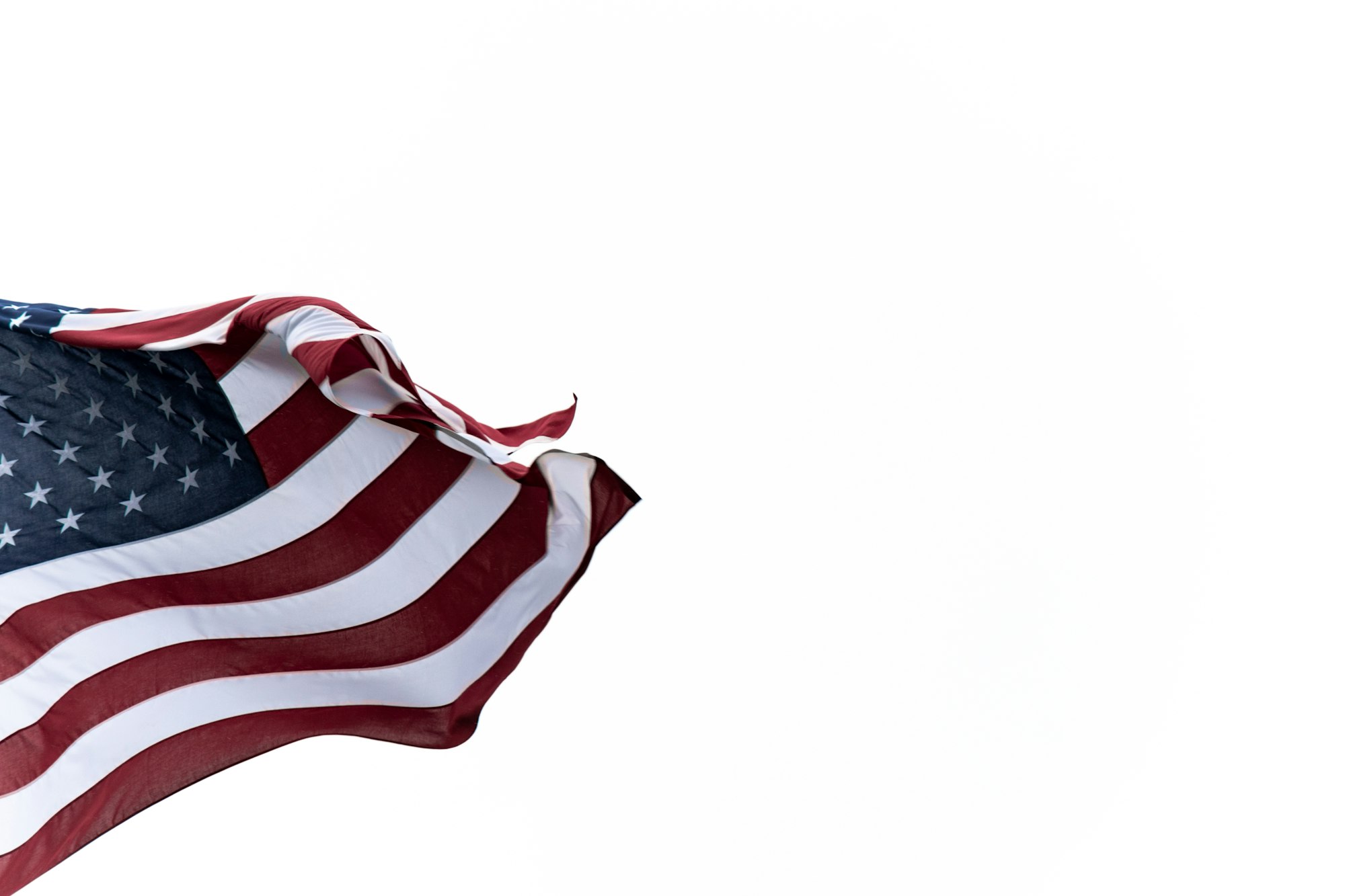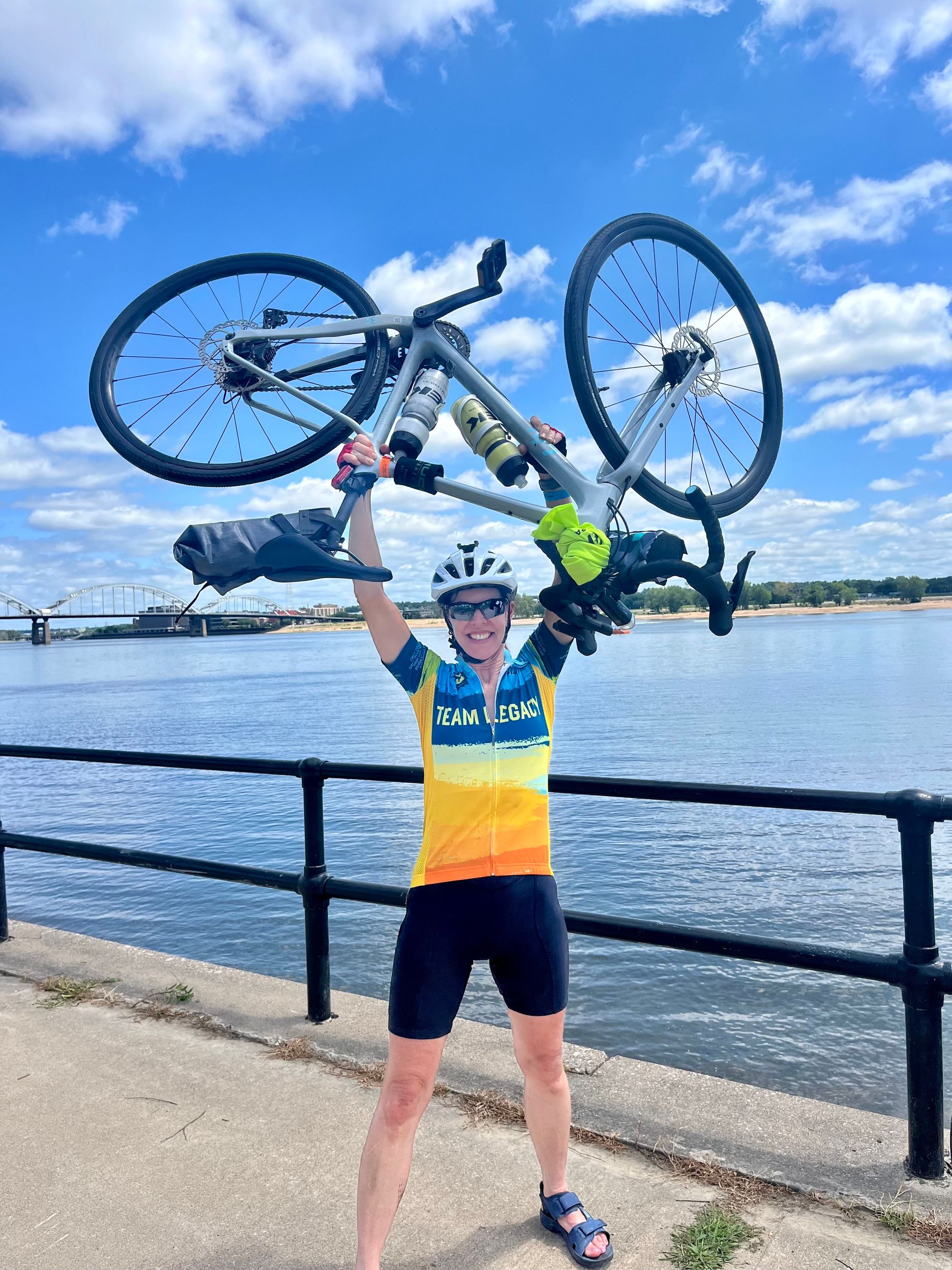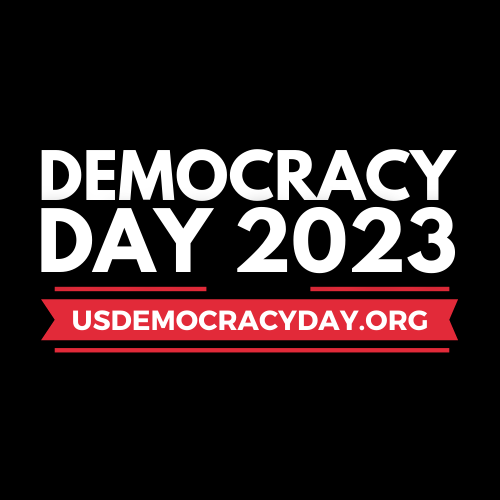How falsehoods can put freedom at risk

This article is part of U.S. Democracy Day, a nationwide collaborative on Sept. 15, the International Day of Democracy, in which news organizations cover how democracy works and the threats it faces. To learn more, visit usdemocracyday.org.
A notable aspect of the Georgia indictment coverage is how many outlets have offered access to the indictment document itself, so people can read it on their own.
- From PBS: Read the full Georgia indictment of Trump and 18 allies
- From Washington Post: Read the full text of the Trump Georgia indictment document
- From Factcheck.org, a project of the Annenberg Public Policy Center at U Penn: Q&A on Trump's Georgia Indictment
In early August, several hosts read most of the indictment, on air, during WNYC's The Brian Lehrer show.
The transparency helps counter skepticism and offers the dose of reality we need, given the mug-shot memes and comparisons to a certain popular television series. Plus the indictment is compelling and easier to get through than you'd think. I highly recommend reading it if you have time.
For this analysis, we'll explore how disinformation shows up. From the "big lie" that underpins it all to specific falsehoods about voting, tabulating, certifying and election workers' actions that were offered as purported evidence, the indictment tells a clear story of how a so-called enterprise used disinformation to disrupt the peaceful transfer of power – a conspiracy no American should stand for.
Truth in Common updates
- More DC Public Library sessions coming soon — I'll let you know when they're solid. Here's a LinkedIn summary of the Cleveland Park series ICYMI.
- I’ll be speaking as part of the Dialogue, Difference and Democracy seminar series sponsored by the National Institute for Civil Discourse and IDEOS Institute on September 13 at 3 p.m. EDT. Register here if you'd like to join, it's free.
- Truth in Common is an NGO partner for this year's Democracy Day, an event on and around September 15 that's designed to drive more robust and nuanced coverage of democracy-related issues. This article is part 1 of my contribution.
- Investigative journalists work daily to expose and explain digital disinformation campaigns so I was interested to discover Double Exposure, a festival for investigative journalism and film that runs November 2-5, 2023 in DC. If you’d like to support the festival by joining a Truth in Common volunteer group, email me at dtroust@3storiescomm.com. If you’d like to learn more or purchase a pass, visit this link.
- A personal note: In late July I completed a 500-mile journey called RAGBRAI – the Register's Annual Great Bicycle Ride Across Iowa. I loved that it's sponsored by a local media outlet, the Des Moines Register, and the positive impact it's had on the state, from road maintenance to fostering a 50-year cycling tradition. Our team of 20 riders and SAG wagon operators rode to honor the legacy of RAGBRAI co-founder Don Kaul, the father of our friend Rachel Kaul. I miss the sense of community and Iowa's really nice people!

Falsehoods and the GA indictment: Criminal activity or protected speech?
When the indictment was first unsealed, I noticed that everyone seemed to know what RICO stood for. I didn't, and after some reading figured out why: I had not been a Sopranos fan.
The indictment describes an "enterprise" of 19 individuals whose violated Georgia's Racketeer Influenced and Corrupt Organizations (RICO) Act – a state version of a Federal law that allows prosecutors to charge people like organized crime leaders who make their underlings do their dirty work. Many of the named individuals are charged with felonies; another 20 or so cooperated and were not indicted. (See this who's who piece from Courthouse News Service.)
The Manner and Methods the enterprise engaged in included:
- Making false statements (verbal and via email, Twitter, text message and official documents) and corruptly soliciting state legislatures and high-ranking state officials;
- Creating and distributing false Electoral College documents and recruiting individuals to cast false Electoral College votes;
- Harassing and intimidating Fulton County election worker Ruby Freeman and Shaye Moss, including trying to convince Freeman to testify to election crimes she didn't commit;
- Soliciting high-ranking U.S. Department of Justice officials and the U.S. Vice President;
- Unlawfully breaching election equipment in Georgia and elsewhere; and
- Obstructive acts in furtherance of "the conspiracy" and cover-up, including perjury, false statements and submitting false documents to government investigators.
Note that spreading disinformation is a crime itself in some counts, and a tool used to illegally influence processes and behavior in others.
Racketeering, or crimes committed through extortion or coercion, has broader legal application than you might expect – Federal prosecutors used it to charge convicted sex trafficker R. Kelly, for example, and referred to his criminal enterprise. Ironically, Rudy Giuliani leaned hard on RICO convictions as mayor of New York City.
It's a bit different when the accused are elected officials and attorneys themselves. I also cannot imagine a better demonstration of the impact falsehoods can have on people and democracy when the powerful and influential share them – and the illegal activities they can inspire.
Using real footage to tell a false story
Let's look at one of the enterprise's strategies – the targeting of Fulton County election workers Ruby Freeman and Shaye Moss – and the falsehoods that fueled it.
The indictment lists 161 acts of racketeering and the first mention of their situation is in Act 25, which states that Georgia attorney Ray S. Smith "knowingly, wittingly and unlawfully" shared false statements with members of the Georgia Senate at a December 3 hearing that included this one (ital=excerpted text):
Act 56 says that Giuliani made this same claim to members of the Georgia House of Representatives on December 10, adding that election workers used the excuse of a water main break to clear the arena and "then went about their dirty, crooked business." The act also documents this false (and racist) Giuliani statement:
In Act 103, Giuliani repeated the claim to members of the Georgia Senate on December 30, saying that Fulton County election workers "fraudulently counted certain ballots as many as five times at State Farm Arena on November 7, 2020."
The next day, Act 108 states, attorney John Eastman filed false documents in the Trump v Kemp case and claimed "That [d]eliberate misinformation was used to instruct Republican poll watchers and members of the press" at State Farm Arena on November 7, 2020.
Several acts describe efforts to pressure Ruby Freeman to testify that vote counting at State Farm Arena was fraudulent. Acts 87 and 117 document how indicted individuals showed up at her house, talked to her neighbors and threatened her, in mid-December and repeatedly on January 4. Act 121 sums it up:

Lee is a pastor and former police chaplain, Floyd was associated with Black Voices for Trump and Kutti is Kanye West's Chicago-based publicist who was recruited by the enterprise to pressure Freeman and threaten her with jail if she did not comply.
That these are real events, not a TV series, boggles the mind.
How do we know the State Farm Arena story was disinformation?
At the heart of this particular web of deceit and harassment is the now-infamous surveillance footage that was pulled by conspirators and used to make claims listed above. You'll recall the cries of "suitcases of ballots" and a late-night "ballot stuffing scheme" (does this refer to stuffing the ballots in the machine? I'm not entirely sure).
Here's how the disinformation flowed, as outlined in this well-researched fact-check in Lead Stories that Georgia's Gabriel Sterling shared via Twitter. On December 3, 2020:
- The Trump campaign posted a YouTube video of an OAN broadcast that it titled "Video from GA shows suitcases filled with ballots pulled from under a table AFTER poll workers left." The Lead Stories piece includes a link to the video if you want to view; you'll see YouTube has added a fact-check label beneath.
- Giuliani showed the video to Georgia state legislators during a hearing at the Georgia Capitol.
- Far-right publication The Epoch Times ran a story titled "Georgia State Farm Arena Footage Shows Poll Workers Staying Behind, Pulling Out Suitcases With Ballots" that reported on the hearing.
- Georgia officials Gabriel Sterling and Frances Watson evaluated the video and reported that it showed normal tabulating procedures; a state election monitor who was present attested to the same.
Note the seeming cooperation of these media outlets in amplifying the story.
On December 4, Georgia Public Broadcasting's posted this fact check and local investigative reporter Justin Gray went through the video frame-by-frame with Georgia election officials. What members of the enterprise said was a suitcase was a normal ballot box. What they said was election watchers and media being asked to leave was those individuals departing because the workers began packing up for the night, but then were asked by supervisors to keep counting, so they did. Election monitors were free to return at any time.
Analysis
That election officials, investigative reporters and professional, unbiased fact-checkers refuted this claim of fraud within 24 hours may have reassured voters who were paying attention, but it did nothing to stop the enterprise from repeating it, or the video from going viral on social media.
Why? Because most people don't understand the ins and outs of vote tabulation. They are not election monitors and would likely not be able to identify whether surveillance footage shows legal or fraudulent activity. The indicted individuals took advantage of this to tell their own story about the video, and since messages of fraud were already circulating it seemed like "evidence" and went viral. It's a propaganda technique called a data void, the same one used by far-right pundits in other influence campaigns (read my piece on that here).
Based on history and experience, I'd bet money that the thought process within the enterprise was "We need video evidence of fraud; it'll go viral and make it easier to convince legislators. Let's go find some" versus the more objective "Maybe there were irregularities; let's check the surveillance footage to see." This inferred intent is why I call the lies noted in the indictment disinformation; you may disagree. Either way, they proved pivotal to the enterprise's efforts.
Some justice in the truth
Freeman and Moss sued Giuliani for defamation in December 2021. In late July he admitted the statements he made about them were false. Maddeningly, he's also saying they're protected by the First Amendment and is denying that he caused Freeman and Moss any damage; the suit is ongoing.
In fact, Freeman and Moss were subjected to intense harassment – around 300 emails, 75 text messages and a load of phone calls, as reported by the Cobb County Police, along with rampant social media trolling. Imagine receiving that volume of messages, via your personal accounts. Watch Moss describe what it was like in her testimony to the House Select Committee to Investigate the January 6 Attack. The USB port sharing Giuliani mentioned was her mom handing her a ginger candy. She also said how proud she was to be able to make voting accessible to members of her community through her job, which she has since quit. Read more of Moss and Freeman's stories in this Reuters piece.
Giuliani's claim of free speech should not hold up in court. The indictment shows that when you use falsehoods to influence public officials and processes that are protected by law and the Constitution, it's a crime.
Signs of integrity, and how to prepare for 2024
Their refusal to cave to this incredible pressure won Freeman and Moss the Presidential Citizens Medal on January 6, 2023. Other state officials, like Arizona legislator Rusty Bowers, are mentioned in the indictment as also holding fast:

Still, election workers nationwide report feeling fearful that they too will be targeted, per a March 2022 poll by the Brennan Center for Justice and numerous other articles. It's a major concern as we approach the 2024 election, which itself has been reported to be a potential cesspool of disinformation.
We can each help reduce the chaos. We can alert others to the coming storm; we can mention the indictment's reveal of the role disinformation played last time, and how it may put people in prison. You can mention the Sopranos for relatability.
Here are some points you can share with family and friends:
What do you think?
Comments are open; please weigh in!
Deanna Troust
Founder and President, Truth in Common
www.truthincommon.org
LinkedIn
Twitter
Threads
Instagram


